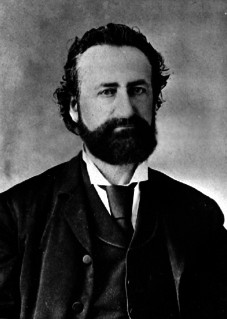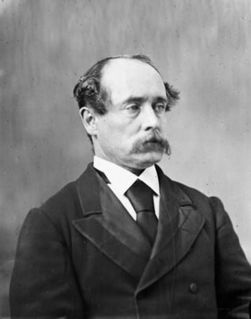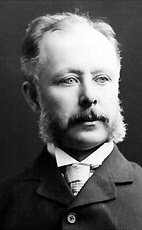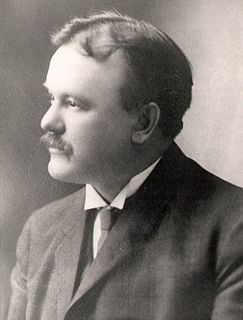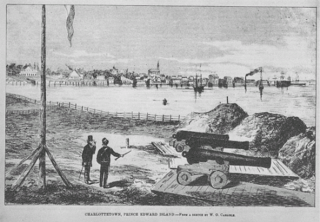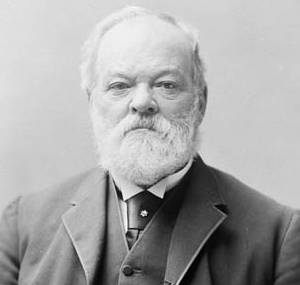
Robert Poore Haythorne (2 December 1815 – 7 May 1891) was a Prince Edward Island politician and premier. He was born in England to a prominent family, his father having been mayor of Bristol on several occasions.
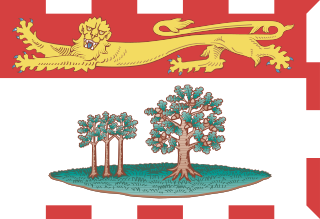
Prince Edward Island is a province of Canada consisting of the Atlantic island of the same name along with several much smaller islands nearby. Prince Edward Island is one of the three Maritime Provinces and is the smallest province in both land area and population, but the most densely populated. It is part of the traditional lands of the Mi'kmaq, and became a British colony in the 1700s and was federated into Canada as a province in 1873. Its capital is Charlottetown. According to the 2016 census, the province of Prince Edward Island has 142,907 residents.
Premier is a title for the head of government in some countries, states and sub-national governments. A second in command to a premier is designated as a vice-premier or deputy premier.

Bristol is a city and county in South West England with a population of 459,300. The wider district has the 10th-largest population in England. The urban area population of 724,000 is the 8th-largest in the UK. The city borders North Somerset and South Gloucestershire, with the cities of Bath and Gloucester to the south-east and north-east, respectively. South Wales lies across the Severn estuary.
Haythorne arrived in Prince Edward Island at the age of 25 and, with his brother, acquired ownership of 10,000 ac (4,000 ha) of land. When the land question became a major issue in the 1860s Haythorne who had been a progressive farmer and a reformer decided to sell his land to his tenants for $2.00/ac ($4.94/ha). His former tenants asked him to run for a seat on the legislative council (which was by then an elected body) in 1867 and he did so winning the seat as a Liberal. Haythorne joined the Liberal government of George Coles and became Premier in 1869 after Coles retired and his successor, Joseph Hensley accepted a judicial appointment.
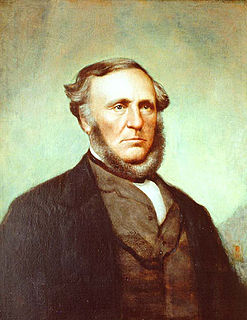
George Coles was a Canadian politician, being the first Premier of Prince Edward Island, and a Father of Canadian Confederation.
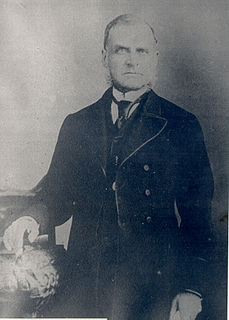
Joseph Hensley was a Prince Edward Island politician. His father, Charles Hensley, had been a member of the legislative council and colonial treasurer. Hensley served briefly as Premier of Prince Edward Island in 1869 and then as an Associate Justice of the province's Supreme Court for a quarter of a century.
Politically, Haythorne became skeptical of Canadian confederation and his government rejected pressure by the British to join Canada because he didn't see confederation as offering a solution to the land question. He favoured reciprocity with the United States as an alternative. Haythorne's majority in the legislature was cut to only four seats as a result of the 1870 election. The issue of school funding divided his government, Haythorne supported funding of separate schools leading to the resignation of several of his ministers and the fall of his government in the fall of 1870.

Reciprocity, in 19th- and early 20th-century Canadian politics, meant free trade, the removal of protective tariffs on all natural resources, between Canada and the United States. Reciprocity and free trade have been emotional issues in Canadian history, as they pitted two conflicting impulses: the desire for beneficial economic ties with the United States and the fear of closer economic ties leading to American domination and even annexation.
James Colledge Pope formed a coalition government with dissidents from Haythorne's Liberal party but Pope's government fell in 1872 when its railway policy almost bankrupted the colony. Haythorne's Liberals returned to power but had to commit to a promise to extend the railway to both ends of the island, a project with the colony could not afford. The financial situation forced Haythorne's government to send a delegation to Ottawa in February 1873 and seek terms for admission to Canadian confederation which would see the completion of the railway and the Canadian government assume the island's debts. Haythorne reached favourable terms including the taking over of the railway by the federal government, the assumption of the colonial debt, an $800,000 payment for the acquisition of proprietarial lands in order to settle the land question by allowing land reform, and a promise of continuous steam communication with the mainland.

James Colledge Pope, was a land proprietor and politician on Prince Edward Island (PEI), Canada. He served as premier of the colony from 1865 to 1867, and from 1870 to 1872. He was premier of PEI in 1873 when the island joined Canadian confederation.
A coalition government is a cabinet of a parliamentary government in which multiple political parties cooperate, reducing the dominance of any one party within that "coalition". The usual reason for this arrangement is that no party on its own can achieve a majority in the parliament. A coalition government might also be created in a time of nationals difficulty or crisis to give a government the high degree of perceived political legitimacy or collective identity it desires while also playing a role in diminishing internal political strife. In such times, parties have formed all-party coalitions. If a coalition collapses, a confidence vote is held or a motion of no confidence is taken.

Ottawa is the capital city of Canada. It stands on the south bank of the Ottawa River in the eastern portion of southern Ontario. Ottawa borders Gatineau, Quebec; the two form the core of the Ottawa–Gatineau census metropolitan area (CMA) and the National Capital Region (NCR). As of 2016, Ottawa had a city population of 964,743 and a metropolitan population of 1,323,783 making it the fourth-largest city and the fifth-largest CMA in Canada.
Haythorne had the legislature dissolved and ran an election on the terms of union with Canada. His Conservative rival, John Colledge Pope, outmanoeuvered Haythorne during the campaign, however, by promising that he could get even better terms. Pope's Tories were elected in April, persuaded Ottawa to increase the promised annual federal subsidy to the island by $25,000 and led the island into confederation on July 1, 1873.
Haythorne was named to the Canadian Senate in October 1873 where he supported free trade with the United States and was an active supporter of the federal Liberal party. He remained a Senator until his death in 1891.

Free trade is a trade policy that does not restrict imports or exports; it is the idea of the free market as applied to international trade. In government, free trade is predominately advocated by political parties that hold right-wing or liberal economic positions, while economically left-wing political parties generally support protectionism, the opposite of free trade.
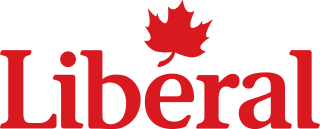
The Liberal Party of Canada is the oldest and longest-serving governing political party in Canada. The Liberals form the current government, elected in 2015. The party has dominated federal politics for much of Canada's history, holding power for almost 69 years in the 20th century—more than any other party in a developed country—and as a result, it is sometimes referred to as Canada's "natural governing party".

